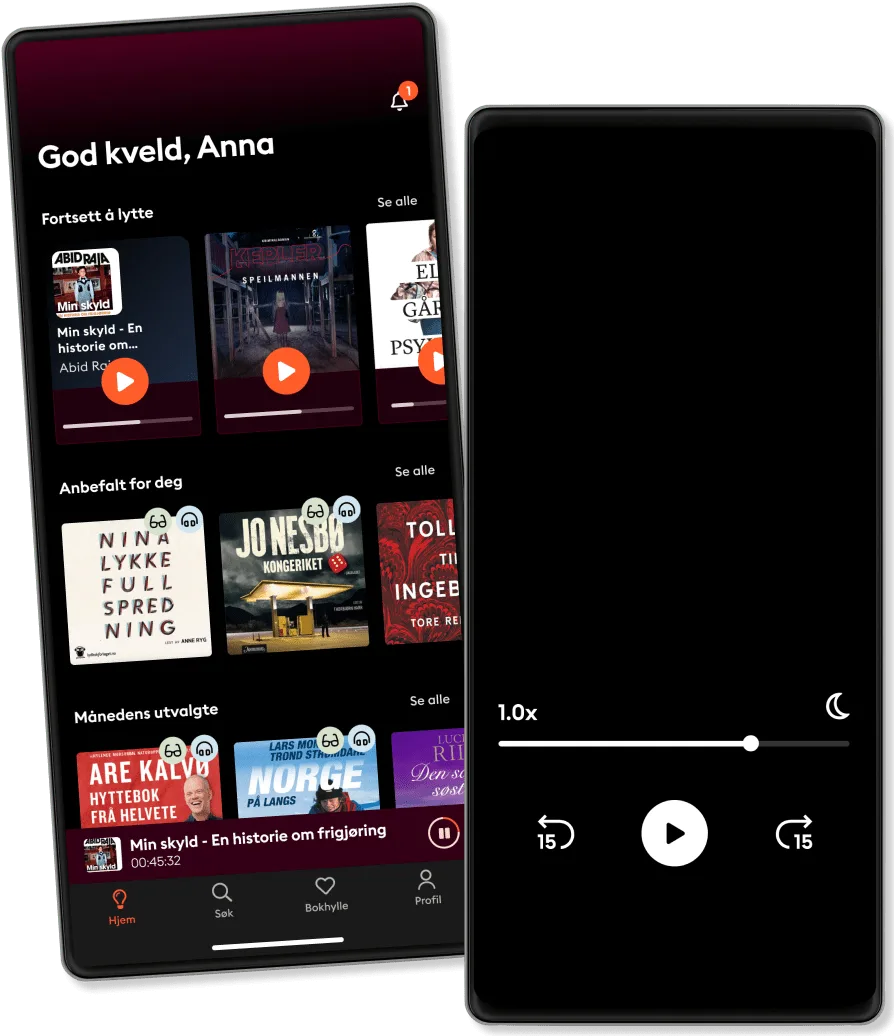How Literatures Begin: A Global History
- Språk
- Engelsk
- Format
- Kategori
Fakta og dokumentar
A comparative history of the practices, technologies, institutions, and people that created distinct literary traditions around the world, from ancient to modern times
Literature is such a familiar and widespread form of imaginative expression today that its existence can seem inevitable. But in fact very few languages ever developed the full-fledged literary cultures we take for granted. Challenging basic assumptions about literatures by uncovering both the distinct and common factors that led to their improbable invention, How Literatures Begin is a global, comparative history of literary origins that spans the ancient and modern world and stretches from Asia and Europe to Africa and the Americas.
The book brings together a group of leading literary historians to examine the practices, technologies, institutions, and individuals that created seventeen literary traditions: Chinese, Japanese, Korean, Indian, Greek, Latin, Hebrew, Syriac, Arabic, English, Romance languages, German, Russian, Latin American, African, African American, and world literature. In these accessible accounts, which are framed by general and section introductions and a conclusion by the editors, literatures emerge as complex weaves of phenomena, unique and deeply rooted in particular times and places but also displaying surprising similarities. Again and again, new literatures arise out of old, come into being through interactions across national and linguistic borders, take inspiration from translation and cultural cross-fertilization, and provide new ways for groups to imagine themselves in relation to their moment in history.
Renewing our sense of wonder for the unlikely and strange thing we call literature, How Literatures Begin offers fresh opportunities for comparison between the individual traditions that make up the rich mosaic of the world’s literatures.
The book is organized in four sections, with seventeen literatures covered by individual contributors: Part I: East and South Asia: Chinese (Martin Kern), Japanese (Wiebke Denecke), Korean (Ksenia Chizhova), and Indian (Sheldon Pollock); Part II: The Mediterranean: Greek (Deborah Steiner), Latin (Joseph Farrell), Hebrew (Jacqueline Vayntrub), Syriac (Alberto Rigolio), and Arabic (Gregor Schoeler); Part III: European Vernaculars: English (Ingrid Nelson), Romance languages (Simon Gaunt), German (Joel Lande), and Russian (Michael Wachtel); Part IV: Modern Geographies: Latin American (Rolena Adorno), African (Simon Gikandi), African American (Douglas Jones), and world literature (Jane O. Newman).
© 2021 Princeton University Press (E-bok): 9780691219844
Utgivelsesdato
E-bok: 20. juli 2021
Tagger
Andre liker også ...
- Poetry at Stake: Lyric Aesthetics and the Challenge of Technology Carrie Noland
- Becoming a Woman of Letters: Myths of Authorship and Facts of the Victorian Market Linda Peterson
- The Closet: The Eighteenth-Century Architecture of Intimacy Danielle Bobker
- The Lives of Literature: Reading, Teaching, Knowing Arnold Weinstein
- King Stakh’s Wild Hunt Uladzimir Karatkevich
- The Shape of the Signifier: 1967 to the End of History Walter Benn Michaels
- Medea: Essays on Medea in Myth, Literature, Philosophy, and Art Sarah Iles Johnston
- Buried Treasures: The Power of Political Fairy Tales Jack Zipes
- Allen Tate: Orphan of the South Thomas A. Underwood
- Sentimental Bodies: Sex, Gender, and Citizenship in the Early Republic Bruce Burgett
- Hotel Alfian Sa'at
- Across the Board: How Games Make Us Human Tim Clare
- Betrayal and Other Acts of Subversion: Feminism, Sexual Politics, Asian American Women's Literature Leslie Bow
- Byzantine Intersectionality: Sexuality, Gender, and Race in the Middle Ages Roland Betancourt
- Gauguin Nathalia Brodskaya
- A deep dive into Symbolism Alfred Hunt
- Midnight Storm Moonless Sky: Indigenous Horror Stories Alex Soop
- Mikhail Vrubel. The Artist of the Eves Mikhail Guerman
- Wandering Greeks: The Ancient Greek Diaspora from the Age of Homer to the Death of Alexander the Great Robert Garland
- Third Sex, Third Gender: Beyond Sexual Dimorphism in Culture and History Gilbert Herdt
- Entitled: Discriminating Tastes and the Expansion of the Arts Jennifer C. Lena
- Red: The History of a Color Michel Pastoureau
- The Everyday Life of Memorials Andrew M. Shanken
- We Are Not the Enemy: The Practice of Advocacy in Singapore Alfian Sa'at
- Skyggeadvokaten Eva J. Stensrud
4.5
- Lysets rustning - Del 2 Ken Follett
4.3
- Lysets rustning - Del 1 Ken Follett
4.5
- Jakten på en serieovergriper Anne-Britt Harsem
4.8
- Herr Knapps uforrettede saker Lars Saabye Christensen
4.2
- Brent Jane Casey
3.9
- Lysets rustning - Del 3 Ken Follett
4.4
- Oppgjør Jane Casey
4.3
- Skriket Jan-Erik Fjell
4.2
- 25 konspirasjoner å snakke om i lunsjen Bjørn-Henning Ødegaard
4.2
- Urolige tider Merice Briffa
4.4
- Jordmoren i Auschwitz Anna Stuart
4.8
- Dilemma Eva J. Stensrud
4.3
- Blodørn Helge Thime-Iversen
3.7
- Den siste datteren Jane Casey
4.2
Derfor vil du elske Storytel:
Over 700 000 lydbøker og e-bøker
Eksklusive nyheter hver uke
Lytt og les offline
Kids Mode (barnevennlig visning)
Avslutt når du vil
Unlimited
For deg som vil lytte og lese ubegrenset.
1 konto
Ubegrenset lytting
Lytt så mye du vil
Over 700 000 bøker
Nye eksklusive bøker hver uke
Avslutt når du vil
Family
For deg som ønsker å dele historier med familien.
2-3 kontoer
Ubegrenset lytting
Lytt så mye du vil
Over 700 000 bøker
Nye eksklusive bøker hver uke
Avslutt når du vil
2 kontoer
289 kr /månedBasic
For deg som lytter og leser av og til.
1 konto
20 timer/måned
Lytt opp til 20 timer per måned
Over 700 000 bøker
Nye eksklusive bøker hver uke
Avslutt når du vil
Lytt og les ubegrenset
Kos deg med ubegrenset tilgang til mer enn 700 000 titler.
- Lytt og les så mye du vil
- Utforsk et stort bibliotek med fortellinger
- Over 1500 serier på norsk
- Ingen bindingstid, avslutt når du vil

Norsk
Norge